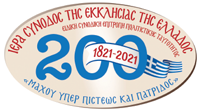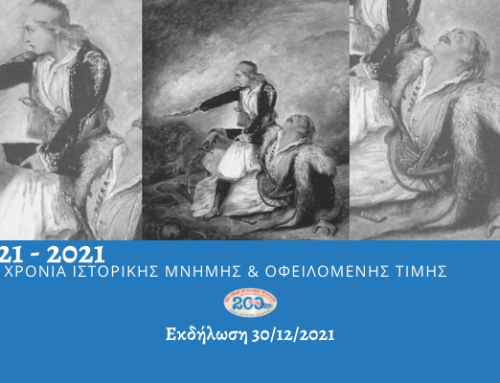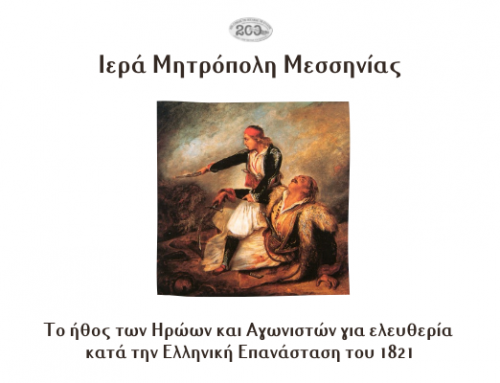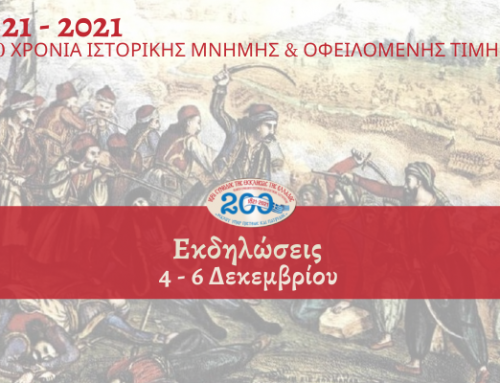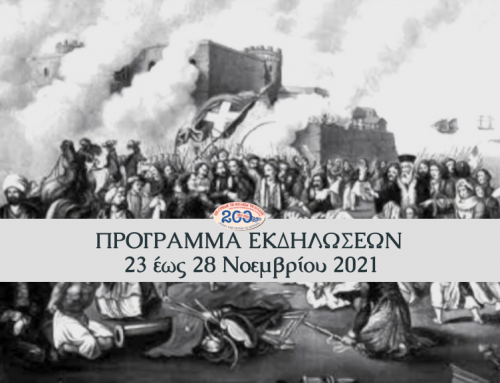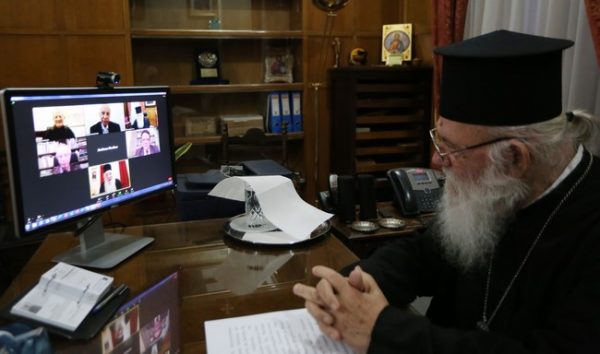
In the presence of HB Ieronymos II, Archbishop of Athens and all Greece, an online event was carried out on Wednesday, March 10, 2021, on the subject “The contribution of the Bœotian Church and the significance of the struggle of Bœotian fighters in the Greek Revolution”, on the occasion of the bicentenary of the liberation struggle. The event was co-organised by the “Diachronica” Centre for the Research into and Study of Bœotia, whose President is the Archbishop, and by the Cultural Association of Levadeia and the “Synthesis” Debate Community.
“The foundation of the modern Greek state did certainly not arise in conditions of a historical vacuum. It was rooted in the collective consciousness of an enslaved people, which was deeply aware of its identity”, stated the Archbishop in his address, and noted that “the dozens of revolutionary movements succeeding one another from the Fall of Constantinople to the Regeneration prove the certain validity of these remarks. The multitude of Patriarchs who lost their lives in a violent manner in the hands of the Ottoman authorities throughout the Turkish Rule clearly connects faith with servitude, a faith which secretly permeated the downtrodden nation. It revivified, constituted its self-consciousness, set criteria. The majority of teachers in the schools which operated during Turkish Rule, when they could operate unobstructed, were clergymen. The awakening work of St. Cosmas the Aetolian, with the dozens of schools he founded, has left its indelible mark on the popular soul. Along with these came the offering of Neomartyrs, those bright stars in the darkness of slavery. Simple people, Bishops, Priests, Monks, and Lay Persons gave their lives for the holy chalice of faith and for the freedom of the fatherland. A chorus of known and unknown heroes of faith and fatherland shouldered the burden of a vision and of the search for a meaning on behalf of an entire nation”.
The Archbishop also pointed out that “our Church and the Bœotian Church, in particular, stood side by side with the people during the Revolution. At that time, the numerous sacrifices of its staff, as evidenced by the protagonists of the events, by fighters, foreign diplomats, and others, sealed the outcome of the struggle. Leading the dance of those killed during the war events, wronged by History, was Bishop Isaiah of Salona, brother of the Holy Monastery of Hosios Loukas of Bœotia. Member of the Society of Friends, he played a crucial part in the uprising in Roumeli, remained in our memories as encapsulating, in his person, together with many others, faith and the love of the fatherland. In the night of the 26th to the 27th of March, in the Monastery of Hosios Loukas were, apart from the Monks and some peasants, Zariphis of the Society of Friends, Thanassis Diakos and Isaiah. They decide to declare the Revolution on March 27 with all the splendour imposed by such an important event. The sun had barely risen and a Doxology was performed. Gheorghios Cremos, a Bœotian historian, reminds us: “As soon as it dawned a Doxology was sung with tears of joy by Bishop Isaiah in the presence of both Zariphis and Diakos”. After the end of the Doxology they piously kissed Isaiah’s hand, which held the simple standard of the revolution, kiss one another and part. Isaiah left for the town of Amfissa quickly together with a small armed entourage. However, before leaving the area of the Monastery, he turned back and for the last time looked at the area where he served as monk and “tears ran down his red cheeks like a premonition of his death at his own Thermopylæ” on the hill of Halkomata, on April 23, 1821, in a battle where his brother, Father Ioannis, also lost his life. As did so many others, and there is so much else”. Closing his address, the Archbishop congratulated the organizers for their initiative and the works of the anniversary event.
Subsequently, Metropolitan Gheorghios of Thebes and Levadeia made reference, among others, to the current year, which he qualified as special, since we celebrate the bicentenary of the Greek Revolution. He then went on to deliver a substantiated speech on the offering and the contribution of the Bœotian Church to the Revolution, while he highlighted that we Greeks managed to keep our faith and national identity.
Finally, on the same subject, speeches were delivered by Mr Ghiorgos Kostayiannis, President of the Cultural Association of Levadeia, Dr Vassilis Karapostolis, Professor at the Department of Communication and Mass Media at the National and Capodistrian University of Athens, Dr Andreas Koukos, Jurist and Historian, President of the “Ioannis Capodistrias” Society for the Study of Contemporary and Modern History, and Mr Demetris Bakas, retired Lieutenant-General, President of the Ark of Holistic Learning of the Armed Forces. The event was coordinated by Mr Constantinos Anghelopoulos, Vice-President of the “Synthesis” Debate Community.
